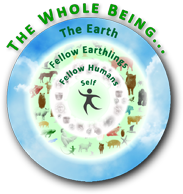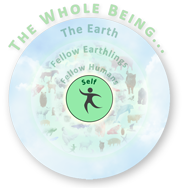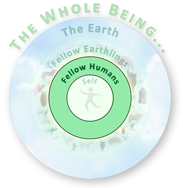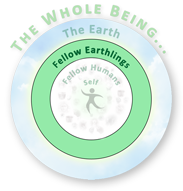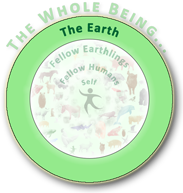Resource Library
To narrow down the list to only resources personally endorsed by CNCL, tick the “CNCL-Endorsed” box.
Please let us know if you find any errors or dead links.
Click here
for a list of…![]()
Broad-Coverage Independent News
& Media Sites
“It’s a sweltering midsummer day. “It must be global warming,” mutters someone. But is it the Earth’s changing climate that has made the day so warm? Or, is it just the weather that is so unbearable?…explore how dynamic forces within the atmosphere change our weather and climate. Learn what causes weather events and climate change and how NCAR scientists are exploring our atmosphere through scientific research.” “The LD50 test is one of the most controversial and inhumane experiments endured by laboratory animals. “LD” stands for “lethal dose”; the “50” means that half the animals, or 50 percent of the animals forced to endure testing the product, will die at that dose.” Book: “Chris Rose’ powerful guide to values mapping is a ‘must-read’ for campaigners. If you want to communicate effectively with people – especially if you want to persuade them to act – you need to start from where they are, not from where you are. The failure to do this lies at the root of many communications damp squibs, disasters and social conflicts. Knowing about the Three Worlds gives you a head start in getting it right. These invisible ‘Worlds’ can only be truly revealed by large scale detailed surveys which identify the connections and correlations between attitudes and beliefs. These sets of attitudes and beliefs create three different versions of ‘common sense’, three distinct ways of seeing the world and of evaluating any offer or ask, any campaign or political idea, any past-time, hobby, social opportunity, any purchase, product or service. Because our place in one world or another is determined by meeting, or not yet having met, unconscious needs – of safety and security or identity, or for esteem of others or self esteem, or for things beyond that such as new ideas, innovations or ethics – we are not ordinarily aware that these worlds exist.” “What the Health is the groundbreaking follow-up film from the creators of the award winning documentary Cowspiracy. The film follows intrepid filmmaker Kip Andersen as he uncovers the secret to preventing and even reversing chronic diseases – and investigates why the nation’s leading health organizations don’t want us to know about it. With heart disease and cancer the leading causes of death in America, and diabetes at an all-time high, the film reveals possibly the largest health cover-up of our time. With the help of medical doctors, researchers, and consumer advocates, What the Health exposes the collusion and corruption in government and big business that is costing us trillions of healthcare dollars, and keeping us sick. Join Kip as he tracks down the leading and most trusted American health nonprofits to find out why these groups are staying silent, despite a growing body of evidence. Audiences will be shocked to learn the insidious roles played by pharmaceutical companies, agribusiness, and processed animal food companies in the nation’s health, especially in the most vulnerable communities, and will cheer at the transformation and recovery of those who took their lives into their own hands. What The Health is a surprising, and at times hilarious, investigative documentary that will be an eye-opener for everyone concerned about our nation’s health and how big business influences it.” Monograph: “Why do some nonviolent revolutions lead to successful democratization while others fail to consolidate democratic change? And what can activists do to push toward a victory over dictatorship that results in long-term political freedom? Several studies show that nonviolent revolutions are generally a more positive force for democratization than violent revolutions and top-down political transitions. However, some nonviolent revolutions, such as the Arab Spring revolution in Egypt, do not seem to fit this pattern. This study takes on this puzzle and reveals that the answer lies in large part in the actions of civil society prior to and during transition. Democracy is most likely when activists can keep their social bases mobilized for positive political change while directing that mobilization toward building new political institutions.” 104 page pdf Book: “Our Choice: Democracy or Corporate Rule. A handful of corporations and financial institutions command an ever-greater concentration of economic and political power in an assault against markets, democracy, and life. It’s a “suicide economy,” says David Korten, that destroys the very foundations of its own existence. The bestselling 1995 edition of When Corporations Rule the World helped launch a global resistance against corporate domination. In this twentieth-anniversary edition, Korten shares insights from his personal experience as a participant in the growing movement for a New Economy. A new introduction documents the further concentration of wealth and corporate power since 1995 and explores why our institutions resolutely resist even modest reform. A new conclusion chapter outlines high-leverage opportunities for breakthrough change.” Book: “This national bestseller exploring the complex emotional lives of animals was hailed as “a masterpiece” by Elizabeth Marshall Thomas and as “marvelous” by Jane Goodall. The popularity of When Elephants Weep has swept the nation, as author Jeffrey Masson appeared on Dateline NBC, Good Morning America, and was profiled in People for his ground-breaking and fascinating study. Not since Darwin’s The Expression of Emotions in Man and Animals has a book so thoroughly and effectively explored the full range of emotions that exist throughout the animal kingdom. From dancing squirrels to bashful gorillas to spiteful killer whales, Masson and coauthor Susan McCarthy bring forth fascinating anecdotes and illuminating insights that offer powerful proof of the existence of animal emotion. Chapters on love, joy, anger, fear, shame, compassion, and loneliness are framed by a provocative re-evaluation of how we treat animals, from hunting and eating them to scientific experimentation. Forming a complete and compelling picture of the inner lives of animals, When Elephants Weep assures that we will never look at animals in the same way again.” Book: “Harry Hoxsey claimed to cure cancer using herbal remedies, and thousands of patients swore that he healed them. His Texas clinic became the world’s largest privately owned cancer center with branches in seventeen states, and the value of its therapeutic treatments was upheld by two federal courts. Even his arch-nemesis, the AMA, admitted his treatment was effective against some forms of cancer. But the medical establishment refused an investigation, branding Hoxsey the worst cancer quack of the century and forcing his clinic to Tijuana, Mexico, where it continues to claim very high success rates. Modern laboratory tests have confirmed the anticancer properties of Hoxsey’s herbs, and a federal govenment-sponsored report is now calling for a major reconsideration of the Hoxsey therapy. When Healing Becomes a Crime exposes the overall failure of the War on Cancer, while revealing how yesterday’s “unorthodox” treatments are emerging as tomorrow’s medicine. It probes other promising unconventional cancer treatments that have also been condemned without investigation, delving deeply into the corrosive medical politics and powerful economic forces behind this suppression. As alternative medicine finally regains its rightful place in mainstream practice, this compelling book will not only forever change the way you see medicine, but could also save your life.” “It took years for King to understand nonviolence not merely as a moral force, but as an effective strategy for leveraging political change. Yet his embrace of that idea allowed him to shape history. Few are aware that Martin Luther King, Jr. once applied for a permit to carry a concealed handgun…To not merely adopt pacifism as a personal philosophy, but rather to stake your career and your organization’s future on a belief in the power of nonviolence as a political force, requires tremendous determination. It took years of deliberation and delay for Martin Luther King to take such a step. But when he finally did, the result was decisive: King went from being someone who had been repeatedly swept up in the saga of civil rights — a reluctant protagonist in the battle against American apartheid — to being a shaper of history.” “Here is a guide to help you choose the right non-dairy milk for all your cooking and baking needs.” “…But a small group of citizens have managed to escape mind control by the corporatocracy. Either to heal their own disease, or out of concern for their planet, or out of mercy for the creatures themselves– they have stopped eating the creatures. As their addictions to the flesh foods subside, their sensibilities recover and they awaken to the vast deception, corruption, and destruction perpetrated by the corporatocracy….” “An Internet Guide to Power Structure Research…Power structure research is an approach to the study of power that highlights the unequal distribution of resources upon which power is based (e.g., wealth, political office, control of the mass media) and the importance of formal and informal social networks as the means by which power is concentrated and institutionalized…This site is divided into several sub-pages, organized by topic. Most pages have direct links to sources of data on the Internet.” “Welcome to WhoRulesAmerica.net, a site about how power is distributed and wielded in the United States. It both builds upon and greatly supplements the book Who Rules America?, now in its 7th edition. The book’s new subtitle, “The Triumph of the Corporate Rich,” reflects the success of the wealthy few in defeating all of their rivals (e.g., organized labor, liberals, environmentalists) over the course of the past 35 years. The story of how the corporate rich won all the big battles is complicated, but most of the answers are in the new Who Rules America? and/or this Web site; you can also watch some videos of Bill giving invited lectures on the topic.” “Black bloc tactics have received much praise in recent weeks, but there are many valid questions about their effectiveness that we ignore at our own peril…I believe we can build such a movement. One that is grounded in nonviolence, but is just as powerful and militant as violence. That, however, requires work, strategy and training. Violence is easier, faster and more natural to us. Its dynamics are simpler to understand. “I make you suffer until you give in.” But now is not the time to get seduced by the short-term. We need to continue to train and grow, to have the humility to be self-critical, and to objectively evaluate our tactics and strategies. We need to continue to build a movement to transform violence.” “Implicit in recent scholarly debates about the efficacy of methods of warfare is the assumption that the most effective means of waging political struggle entails violence. Among political scientists, the prevailing view is that opposition movements select violent methods because such means are more effective than nonviolent strategies at achieving policy goals. Despite these assumptions, from 2000 to 2006 organized civilian populations successfully employed nonviolent methods including boycotts, strikes, protests, and organized noncooperation to challenge entrenched power and exact political concessions in Serbia (2000), Madagascar (2002), Georgia (2003) and Ukraine (2004–05), Lebanon (2005), and Nepal (2006). The success of these nonviolent campaigns—especially in light of the enduring violent insurgencies occurring in some of the same countries—begs systematic investigation.” 38 page pdf Book: “For more than a century, from 1900 to 2006, campaigns of nonviolent resistance were more than twice as effective as their violent counterparts in achieving their stated goals. By attracting impressive support from citizens, whose activism takes the form of protests, boycotts, civil disobedience, and other forms of nonviolent noncooperation, these efforts help separate regimes from their main sources of power and produce remarkable results, even in Iran, Burma, the Philippines, and the Palestinian Territories. Combining statistical analysis with case studies of specific countries and territories, Erica Chenoweth and Maria J. Stephan detail the factors enabling such campaigns to succeed and, sometimes, causing them to fail. They find that nonviolent resistance presents fewer obstacles to moral and physical involvement and commitment, and that higher levels of participation contribute to enhanced resilience, greater opportunities for tactical innovation and civic disruption (and therefore less incentive for a regime to maintain its status quo), and shifts in loyalty among opponents’ erstwhile supporters, including members of the military establishment. Chenoweth and Stephan conclude that successful nonviolent resistance ushers in more durable and internally peaceful democracies, which are less likely to regress into civil war. Presenting a rich, evidentiary argument, they originally and systematically compare violent and nonviolent outcomes in different historical periods and geographical contexts, debunking the myth that violence occurs because of structural and environmental factors and that it is necessary to achieve certain political goals. Instead, the authors discover, violent insurgency is rarely justifiable on strategic grounds.” “February 01, 2019 “Information Clearing House” – Last week Trump, his VP Mike Pence, US State Dept. director Mike Pompeo and Trump’s national security advisor John Bolton, plus a bunch of Central American countries that are pretty much US colonies and don’t have foreign policies of their own, synchronously announced that Venezuela has a new president: a virtual non-entity named Juan Guaidó, who was never even a candidate for that office, but who was sorta-kinda trained for this job in the US. Guaidó appeared at a rally in Caracas, flanked by a tiny claque of highly compensated sycophants. He looked very frightened as he self-appointed himself president of Venezuela and set about discharging his presidential duties by immediately going into hiding. His whereabouts remained unknown until much later, when he surfaced at a press conference, at which he gave a wishy-washy non-answer to the question of whether he had been pressured to declare himself president or had done so of his own volition. There is much to this story that is at once tragic and comic, so let’s take it apart piece by piece. Then we’ll move on to answering the question of Why Venezuela must be destroyed (from the US establishment’s perspective).” Video: “So many things are happening, changing, shifting to day. These changes are happening both within our vegan movement, and outside of it, in the technological, economical, creative and other domains. In this talk we will look at the newest developments and trends that are moving us closer and closer to a vegan world. We will also take a look at what position we vegans should take with respect to all these developments.” “The word vegan can be somewhat confusing to outsiders. Being a vegan means more than refusing to consume animal remains or products. The argument that animals are not killed for their eggs or milk means nothing to vegans because animal exploitation itself is a crime against nature and decency.”Found 2210 Results
What Is the Difference Between Weather and Climate?
![]()
What is the LD50 Test?
![]()
What Makes People Tick: The Three Hidden Worlds of Settlers, Prospectors and Pioneers
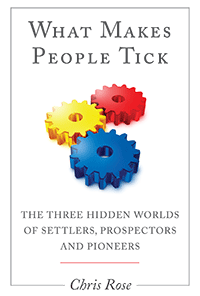
What the Health

When Civil Resistance Succeeds: Building Democracy After Popular Nonviolent Uprisings
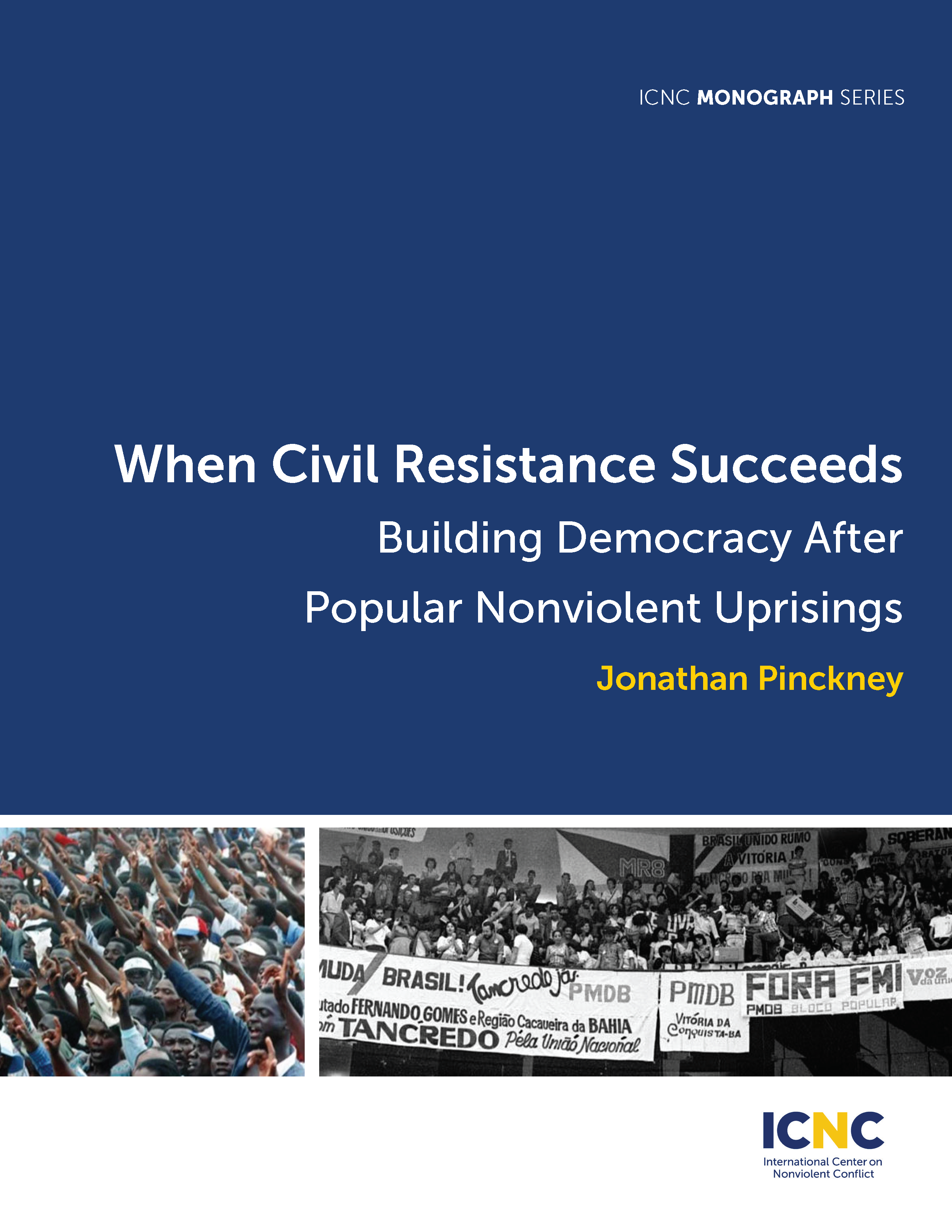
When Corporations Rule the World
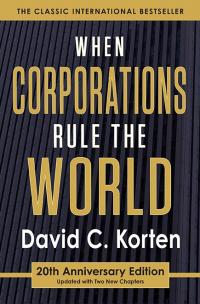
When Elephants Weep: The Emotional Lives of Animals
When Healing Becomes a Crime: The Amazing Story of the Hoxsey Cancer Clinics and the Return of Alternative Therapies
When Martin Luther King gave up his guns
![]()
Which Milk for What Recipe: A Non-Dairy Milk Guide for All Your Cooking and Baking Needs
![]()
Who Are THEY?
![]()
Who Rules?
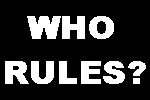
WhoRulesAmerica.net

Why Black Bloc tactics won’t build a successful movement
![]()
Why Civil Resistance Works: The Strategic Logic of Nonviolent Conflict (article)
![]()
Why Civil Resistance Works: The Strategic Logic of Nonviolent Conflict (book)
Why Must Venezuela Be Destroyed?
![]()
Why the future will be vegan – Tobias Leenaert [IARC 2016]
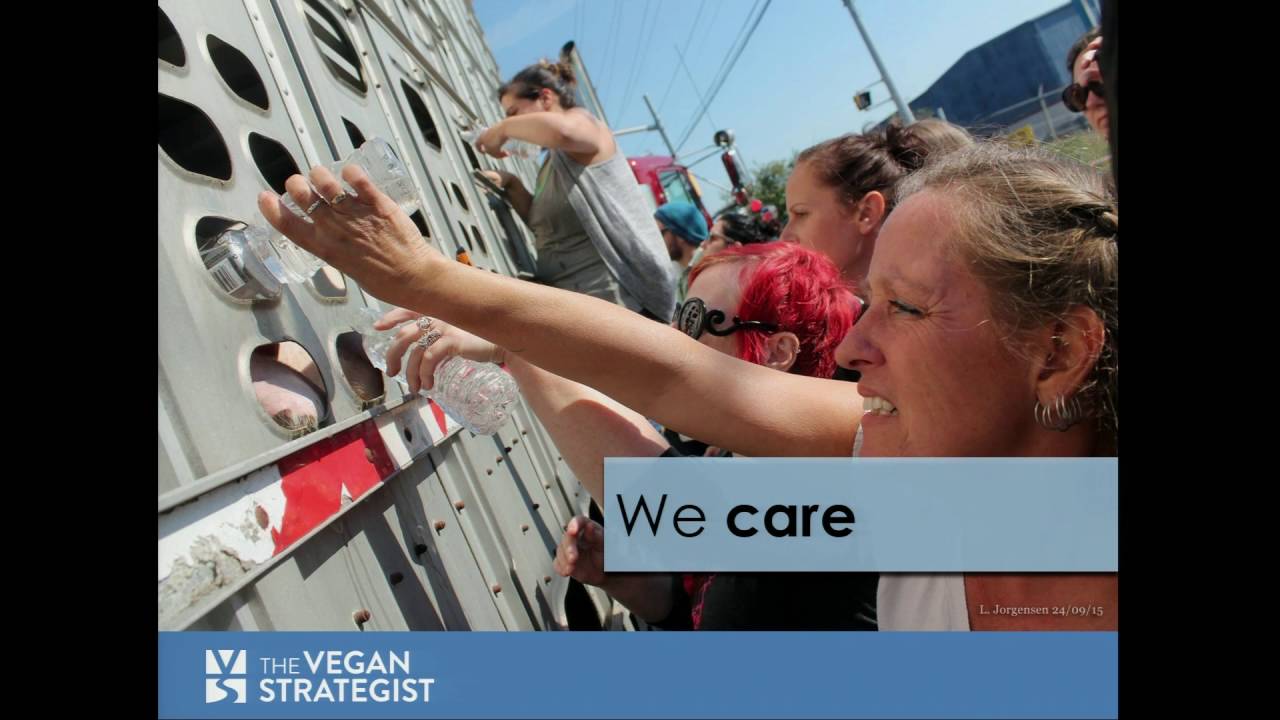
Why Vegans Don’t Use Animal Products
![]()

